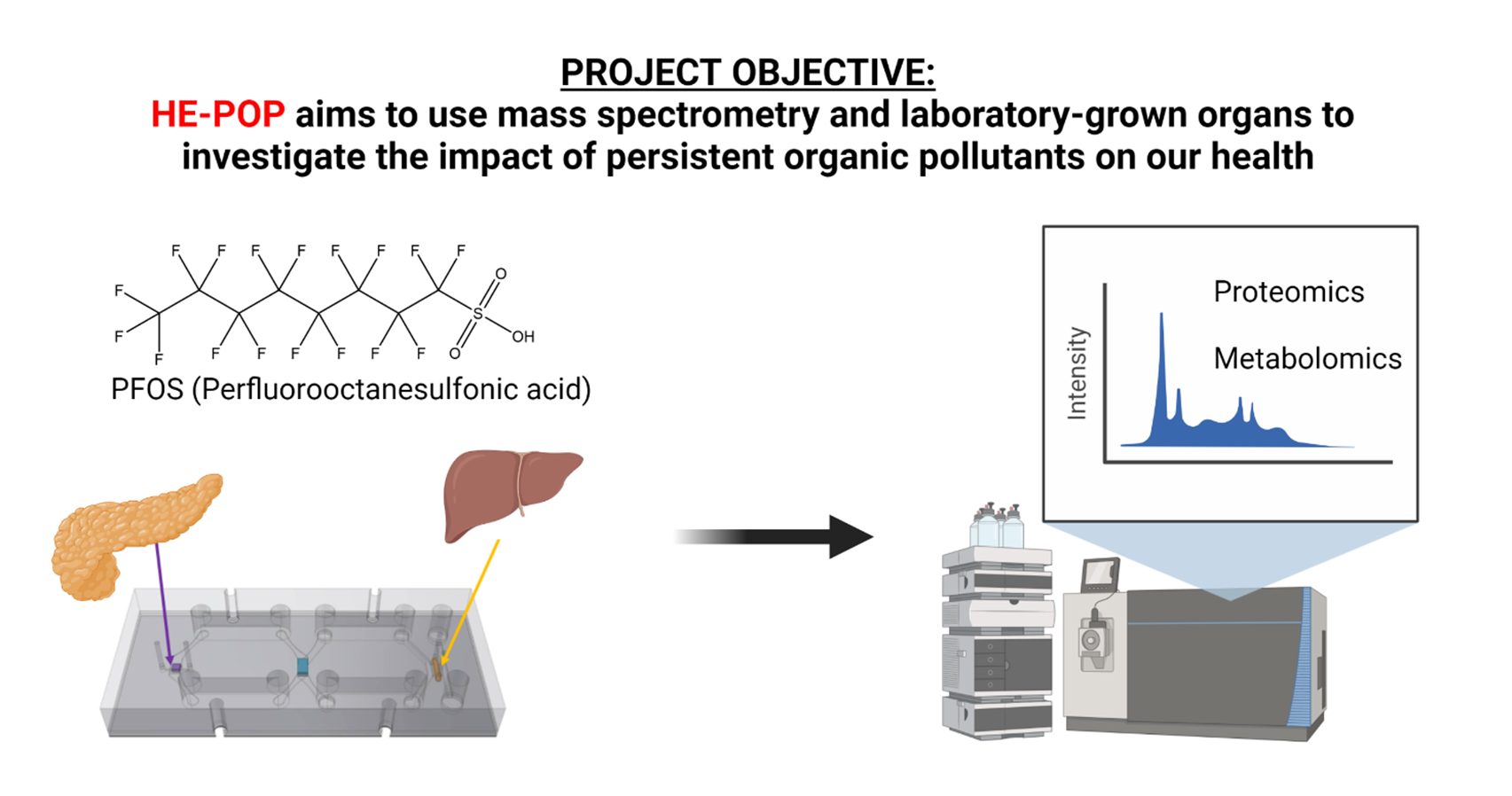Project summary
Persistent organic pollutants (POPs) are believed to contribute to metabolic diseases, such as non-alcoholic fatty liver disease (NAFLD) and type 1 diabetes. HE-POP aims to investigate the effects of per- and polyfluoroalkyl compounds (PFAS), a type of POPs), on organ function in a controlled environment.
Organoids are multicellular laboratory-grown miniature organs, that are grown from stem cells. HE-POP will use organoids to examine how PFAS affects our organs and develop cutting-edge bioanalytical tools and methodology to measure these effects using liquid chromatography-mass spectrometry. HE-POP hypothesizes that PFAS negatively affects organ function, as evidenced by changes in hormone and lipid levels characteristic of NAFLD and type 1 diabetes.
Organoids offer a controlled environment to study the effects of PFAS on the liver and pancreas, without the use of animal models. HE-POP aims to gain evidence of the negative effects of PFAS on organ function through controlled experiments on organoids and aid in understanding the biological mechanisms underlying NAFLD and type 1 diabetes.
HE-POP has fundaments in UN sustainable development goals, seeking an understanding of diseases with worldwide prevalence, and understanding how POPs affect our lives and surroundings and help enable the right regulatory actions and replacement chemicals.

